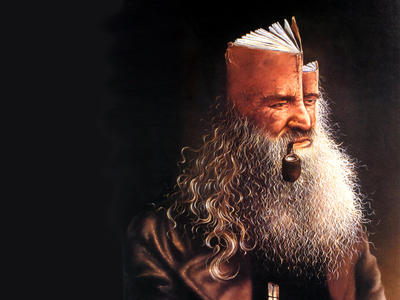 “If questioned on the matter he would most likely assent to the proposition that telling stories is as characteristically human a thing as we humans do, and is thus itself at least as fit a story-subject as another. How goes it friend? How was your weekend, your childhood, your parents’ divorce, your first life-changing love affair, most painful disenchantment, biggest mistake, dying day? And what does it tell us about you that you tell us those particular stories about yourself and not others – that, moreover, you tell them the way you tell them – rather than telling some other stories some other way? Nay, more: Though neither philosopher nor cognitive scientist himself, Charles P. Mason would, if asked, almost certainly agree with those “neurophilosophers” who hold that consciousness itself has evolved to be essentially a scenario machine; that in order to make sense of and to navigate through the onstreaming flood of signals deluging our senses, our brains posit the useful fiction of a Self that attends, selects from, organizes, considers, speculates, and acts upon that data – an “I” who invents and edits itself as it goes along, in effect telling stories to itself and to others about who it is. Indeed, an I whose antecedent is, finally, nothing other than those ongoing, ever-evolving stories, their center of narrative gravity.”
“If questioned on the matter he would most likely assent to the proposition that telling stories is as characteristically human a thing as we humans do, and is thus itself at least as fit a story-subject as another. How goes it friend? How was your weekend, your childhood, your parents’ divorce, your first life-changing love affair, most painful disenchantment, biggest mistake, dying day? And what does it tell us about you that you tell us those particular stories about yourself and not others – that, moreover, you tell them the way you tell them – rather than telling some other stories some other way? Nay, more: Though neither philosopher nor cognitive scientist himself, Charles P. Mason would, if asked, almost certainly agree with those “neurophilosophers” who hold that consciousness itself has evolved to be essentially a scenario machine; that in order to make sense of and to navigate through the onstreaming flood of signals deluging our senses, our brains posit the useful fiction of a Self that attends, selects from, organizes, considers, speculates, and acts upon that data – an “I” who invents and edits itself as it goes along, in effect telling stories to itself and to others about who it is. Indeed, an I whose antecedent is, finally, nothing other than those ongoing, ever-evolving stories, their center of narrative gravity.”- John Barth, from The Book of Ten Nights and a Night, 2004, Houghton Mifflin

No comments:
Post a Comment